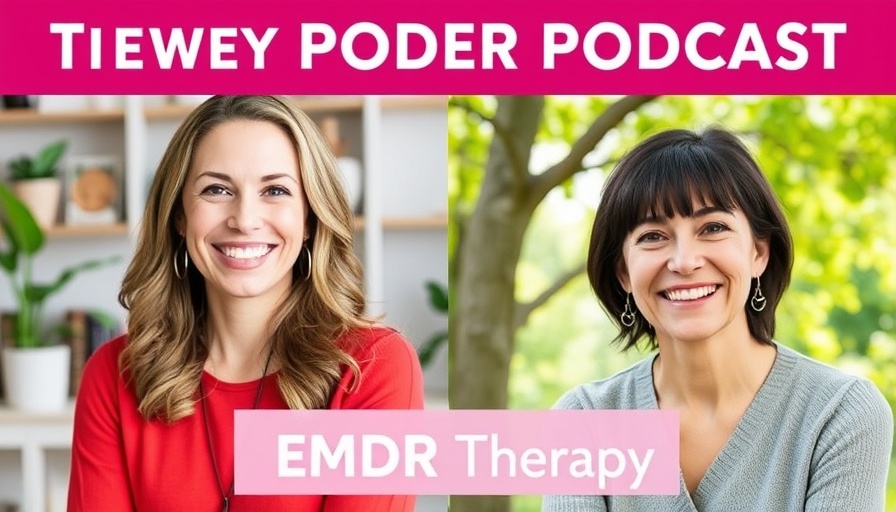
The Power of EMDR Therapy for Trauma Recovery
In a world increasingly aware of mental health challenges, the importance of effective therapy cannot be overstated. EMDR, or Eye Movement Desensitization and Reprocessing, is a groundbreaking approach that addresses traumatic memories and emotional distress at their roots. Speaking with Susie Morgan, a licensed marriage and family therapist, we unravel how EMDR therapy transforms lives and supports various mental health issues.
Understanding EMDR: Mechanism and Benefits
Emerging from the field of psychology, EMDR has gained recognition for its structured method of assisting individuals in processing trauma. Through guided eye movements, clients can reprocess distressing memories, leading to significant reductions in PTSD symptoms and a pathway to healing. This method reflects a profound understanding of the brain's memory storage processes, allowing it to effectively tackle issues like anxiety, depression, and chronic pain.
How EMDR Addresses Attachment Trauma
The connection between early life attachments and emotional health is crucial. Susie emphasizes that our formative experiences can shape our nervous systems, influencing our responses to stress and relationships in adulthood. EMDR therapy helps unpack these complex layers, leading to healthier emotional responses and relationships.
Finding Your Therapeutic Match: Key Considerations
Choosing the right therapist is essential for a successful EMDR experience. It’s vital to look for someone who resonates with you and understands your unique background. The therapeutic fit fosters trust, which is critical when discussing vulnerable topics related to trauma and recovery.
The Importance of Prep Work and Readiness in EMDR
Preparing for EMDR can significantly enhance the therapeutic experience. Engaging in preliminary discussions and developing coping strategies creates a safe space for healing. The EMDR Readiness Course serves as an invaluable resource for potential clients to familiarize themselves with the process and set expectations.
Real-Life Reflections: A Personal Journey with EMDR
Personal stories often provide the clearest insight into therapy's impact. Coach Betty Rocker shares her transformative EMDR experience, highlighting how it allowed her to reclaim joy and manage symptoms of anxiety and depression. These narratives serve not only as testimonials but also inspire others seeking similar help.
Who Can Benefit from EMDR?
EMDR therapy is not limited to those with PTSD; it extends to individuals grappling with anxiety, chronic pain, substance use disorders, and other distressing life experiences. Recognizing its broad applicability helps dismantle stigma around seeking help, encouraging more people to explore this effective treatment method.
Resources for Further Support
For those considering EMDR, several resources can guide the journey. The EMDRIA International Association provides an extensive directory to help individuals find certified therapists. Additionally, the EMDR Readiness Course is a free resource designed to help people prepare for their therapy sessions.
Embracing a Holistic Approach to Mental Wellness
Integrating EMDR therapy with other wellness practices enhances overall mental health. Mindfulness, journaling, and self-care routines can complement therapeutic sessions, promoting a holistic approach to emotional and mental wellness. Striving for balance in life—physically, emotionally, and spiritually—underscores the concept of wellbeing as a continuous journey.
Moving Forward: An Invitation to Explore EMDR
In a time when mental health is more crucial than ever, exploring therapies such as EMDR can be life-changing. By understanding its principles, recognizing its efficacy, and engaging with the right professional, individuals can unlock profound healing opportunities. If you or someone you know is struggling, consider seeking out EMDR therapy to pave the way for recovery and resilience.
 Add Element
Add Element  Add Row
Add Row 



Write A Comment